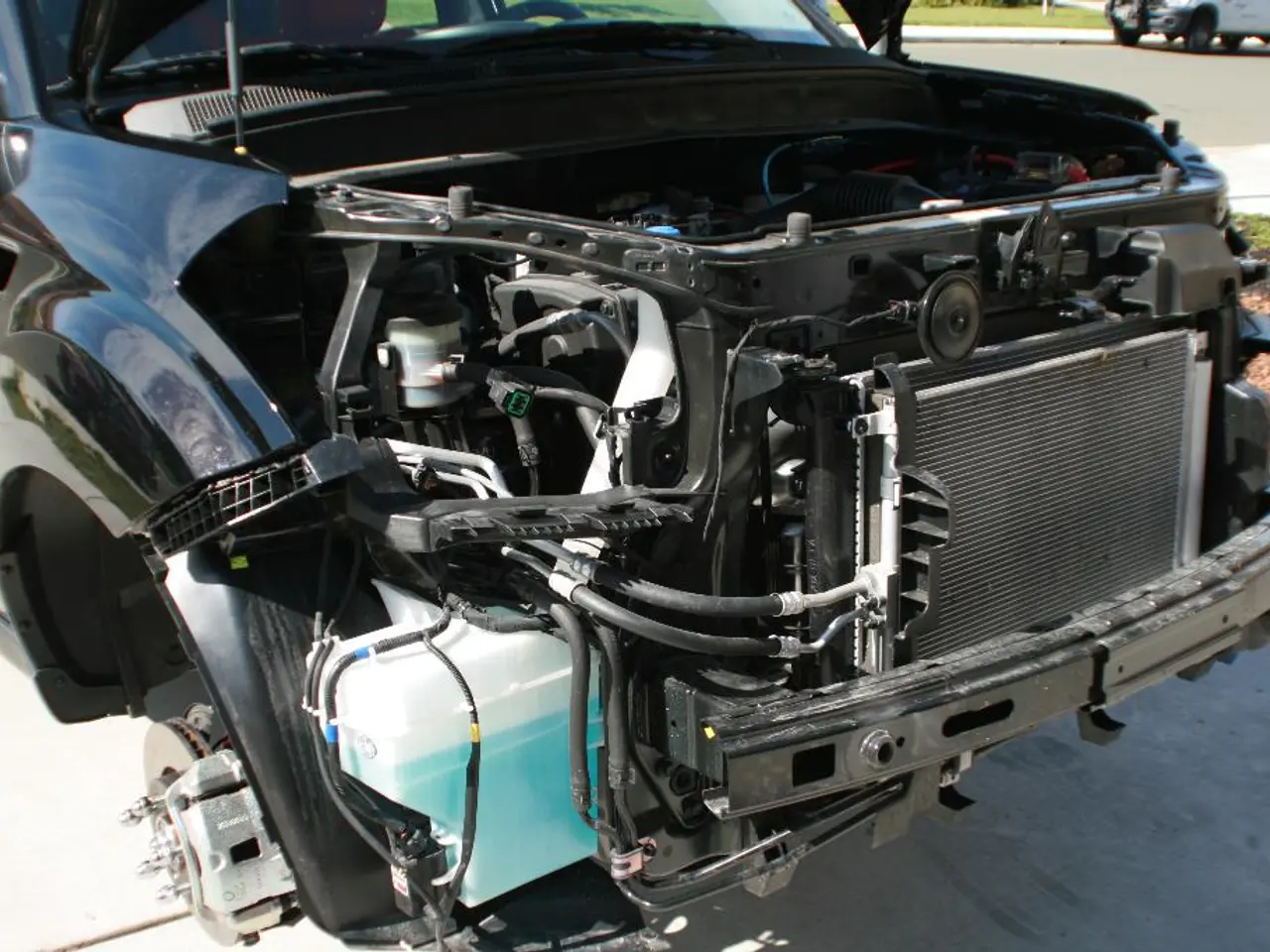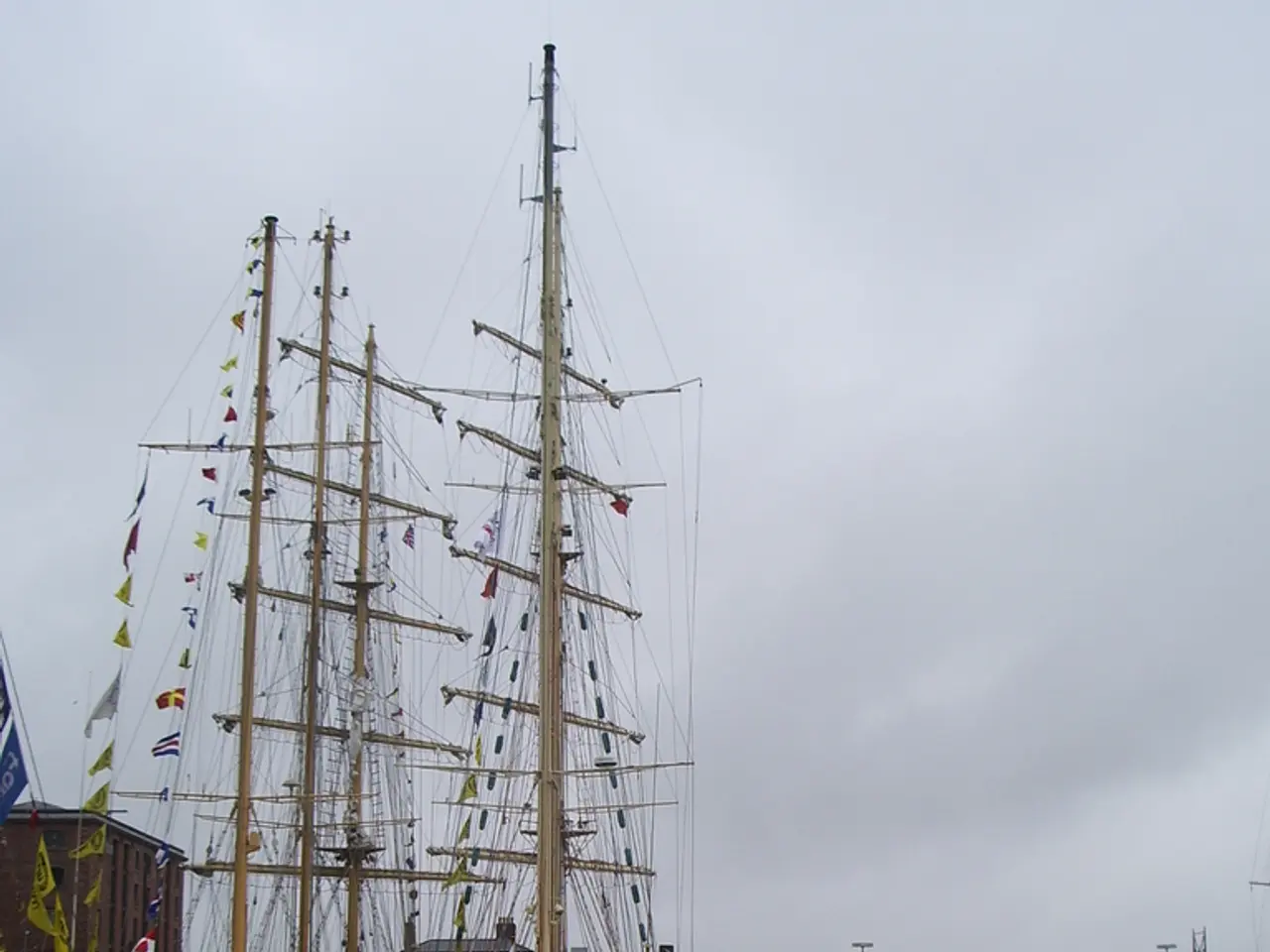Electric hypercar Rimac Nevera sets new world record by accelerating fastest in reverse direction.
A new joint venture between Porsche, Rimac, and Bugatti, named Bugatti Rimac, has been formed and is set to revolutionize the ultra-luxury performance car industry. The partnership, established in May 2021, sees Rimac Group as the majority shareholder with a 55% stake, while Porsche AG holds 45% of Bugatti Rimac and an additional 24% stake in Rimac Group itself[1].
The alliance aims to combine the technical expertise of Rimac with the heritage and brand strength of Bugatti and Porsche. Rimac leads the technology and engineering side, focusing on electric powertrain innovation and advanced battery systems. The Rimac Campus near Zagreb, set to open in 2024, will be a key hub for high-tech automotive R&D and production supporting this partnership[5].
The future cars from Bugatti Rimac will likely focus heavily on electrification and hybrid technology. Porsche's recent announcements indicate a hybrid setup for upcoming models like the 992.2 Turbo S. Meanwhile, Rimac continues to develop bespoke electric hypercars, implying that Bugatti Rimac's future vehicles will feature state-of-the-art electric or hybrid drivetrains with an emphasis on performance, sustainability, and cutting-edge technology[2][5].
Bugatti Rimac has financial targets to reach profitability by 2025, reflecting a strategic push towards sustainability and innovation in the ultra-high-performance segment[3]. They have also established a bespoke division, Sur Mesure, for special tailor-made models, signaling plans to retain exclusivity and custom craftsmanship in future releases[1].
While the partnership focuses on the future of performance cars, the Rimac Nevera EV has already made history. The car, which boasts a unique drivetrain consisting of four liquid-cooled electric motors and a 120kWh battery, recently broke the record for the fastest car in reverse at the Automotive Testing Papenburg Facility in Germany. The Rimac Nevera EV reached a speed of 171.34mph (275.74 km/h), surpassing the earlier record of 102.58mph set by a Caterham 7 Fireblade in 2001[4].
Matija Renić, the Chief Program Engineer for the Rimac Nevera, initially dismissed the possibility of the car becoming the fastest in reverse. However, simulations for the Rimac Nevera EV showed the car could speed up to 150mph in reverse, leading to the attempt and successful achievement of the record[4].
Bugatti Rimac is not stopping at the reverse speed record. The company is planning to attempt a sideways speed record next, further pushing the boundaries of what is possible with electric hypercars[4].
[1] Bugatti Rimac [2] Porsche's Hybrid Future [3] Bugatti Rimac's Financial Goals [4] Rimac Nevera Breaks Reverse Speed Record [5] Rimac Campus
- The collaboration between Bugatti Rimac, Porsche, and Rimac Group is not only focused on performance cars but also aims to involve sports-betting, as the technological advancements in electric vehicles (electric-vehicles) and sports cars could open new opportunities in this field.
- The Bugatti Rimac partnership intends to incorporate technology from all three companies into their future cars, making them a fusion of luxury lifestyle, sports, and cutting-edge technology.
- As Bugatti Rimac continues to push boundaries with their electric hypercars, such as the Rimac Nevera that broke the reverse speed record, they are also planning to venture into sports-betting, leveraging their brand strength and innovation for competitive edge in this arena.



